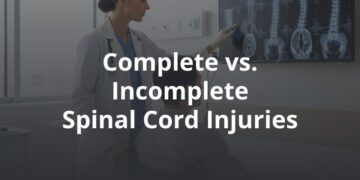Paying for motor vehicle insurance is not exactly at the top of anyone’s list of favorite activities. Considering that the consumer price of auto insurance rose over 40 percent between 2011 and 2020, that’s really not surprising. Still, it’s the way of the world, and to some extent, the law of the land.
Most drivers never discuss their auto policies with anyone but their insurance agent, and the agent’s job is to sell you coverage. The Lone Star State also sees 1,000 new residents a day, so whether you were born in Texas or got here as fast as you could, it makes sense that you might be wondering, Do I need uninsured motorist coverage in Texas?
What Is Uninsured Motorist Coverage?
First, let’s figure out what uninsured ─ or underinsured ─ motorist coverage (UIM) is. This is a type of auto insurance that you can purchase as part of your own policy. This coverage is intended to provide you with a backup source of recovery if you are harmed in a crash by someone without liability insurance at all or without enough coverage to cover your damages. There are two kinds of backup policies available to Texas motorists:
- UM/UIM Bodily Injury (BI) pays if you or any person in your car is hurt.
- UM/UIM Property Damage (PD) pays to fix or replace your property. There is a $250 deductible.
What Does UIM Cover?
Depending on the kind of coverage you have, UIM covers injuries as well as property damage. Many people get UIM to have the peace of mind that if they’re in a bad wreck and the other driver’s policy is not sufficient or simply does not exist, they will have a safety net with their own insurance company.
First of all, it is not unreasonable to think that you might be harmed by a driver without state-mandated liability coverage. In spite of Texas’s insurance verification system that allows law enforcement to access the state transportation office database of lapsed or canceled policies, nearly 10 percent of drivers across the state do not have the mandatory minimum liability insurance, let alone more coverage than required. In Texas, the minimum liability policy — meaning coverage that pays for another person’s damages when you are responsible — is 30/60/25:
- $30,000 of coverage for injuries per person
- $60,000 maximum injury payout per accident
- $25,000 of coverage for property damage
UIM is intended to cover damages that exceed the amount of liability insurance that the driver who hit you has on their policy. The way UIM works is that the policy of the at-fault driver first pays you for the damages, and then if your damages are more than the limit their insurance company is required to pay, you can file a claim with your own insurance company to use your UIM policy.
Is UIM Necessary?
It doesn’t take an extremely serious collision to quickly exceed the state minimum coverage when it comes to recovery. From car repair to medical bills, people who have been harmed in a crash hit the $30,000 mark pretty quickly. With an emergency room visit costing thousands of dollars before any procedures or tests are performed, you can imagine that a crash resulting in your needing surgery or any sort of long-term or rehabilitative care — on top of the property damage suffered — adds up quickly.
Now imagine that multiple drivers are involved. Let’s say one driver caused a crash that involved three more drivers. The negligent driver’s policy isn’t going to increase the maximum payout — it just means all victims have to split the insurance money. Once the at-fault driver’s policy has been exhausted, that’s where your UIM claim kicks in with your insurance.
Since you choose whether to have the policy, you will choose the amount when you negotiate your policy with your insurance company, roughly every six months. The back and neck are particularly susceptible to injury in a wreck with any kind of vehicle, but especially with large trucks, and just one surgery can be tens of thousands of dollars or more. Since UIM is not required, there is no minimum, but a good rule of thumb is to purchase as much as you can afford.
How Does UIM Work If You’re in an Accident with an Uninsured Motorist?
When you are hit by a car, whether you are in your own car, on a bicycle, or even on your feet, you might expect that the process of being compensated by the responsible party’s insurance company is simple. Unfortunately, that is not always the case. The person who hit you may be a driver
- Who doesn’t have any liability car insurance
- Who doesn’t have enough liability insurance
- Whose insurance company denies coverage or goes out of business
If you have collision insurance, which is required in Texas if you do not own your car outright, your insurance company may want to say you are at fault and use that, requiring you to pay a deductible and possibly see your premiums go up.
This is one reason why it’s important to remember that even speaking to your own insurance company about your accident (aside from reporting the accident, which your insurance contract requires you to do) without first speaking to a car accident injury lawyer is not usually in your best interest. Your insurance company will usually try to save themselves as much money as possible, and should you have grounds for a substantial claim they will need to pay out, they will likely fight it.
What Does Texas Law Say About Uninsured Motorist Coverage?
While Texas law does not require drivers to purchase UIM as part of their policies, insurance companies are required to offer it. If you choose not to purchase UIM, you must turn it down in writing. Regardless of the legal requirements for purchasing the coverage, what’s more significant these days is how the state is going to handle when your own insurance fights your claim.
In May 2021, the Texas Supreme Court handed down a monumental decision in the case of Allstate v. Irwin regarding the responsibility of the insurance company when it comes to paying for their own insured’s UIM claims. This ruling acknowledges that insurance companies in Texas have been abusing and shorting their own clients when it comes to UIM claims by making it more difficult to get a fair recovery, and gives judges discretion to award attorneys’ fees in UIM cases.
This decision does not make major sweeping changes to the UIM laws, but it does level the playing field a bit for those who have been injured in accidents to hold their own insurance companies accountable in the event that a claim is denied or undervalued.
How Can FVF Help in Case of Such an Accident?
Auto insurance can be a valuable resource, especially in the event that you are hit by another driver. FVF wants everyone who has been injured in a car accident to understand that they have rights, and being educated about those rights is one way to make sure that you can advocate for yourself. Sometimes, that means fighting for fair recovery against the at-fault driver’s insurance company, and sometimes that means fighting with your own for the full value of your uninsured motorist claim.
FVF’s priority is to provide information, regardless of whether you hire us to represent you. Contact us for a no-cost case consultation and information about resources available to you.







